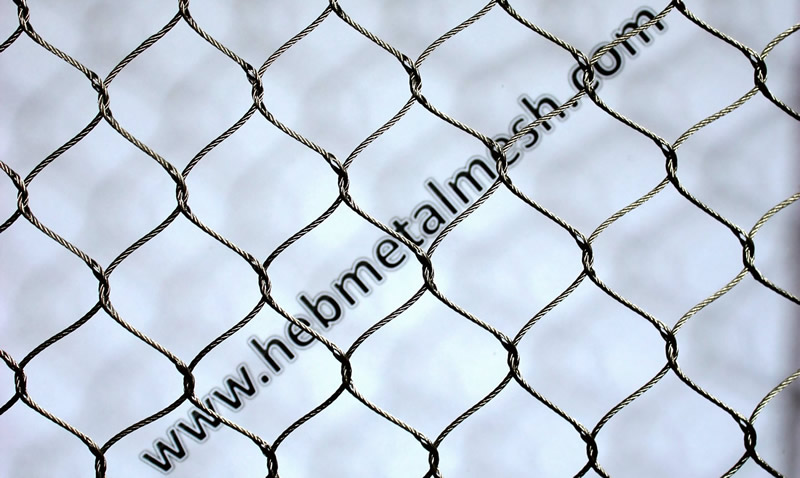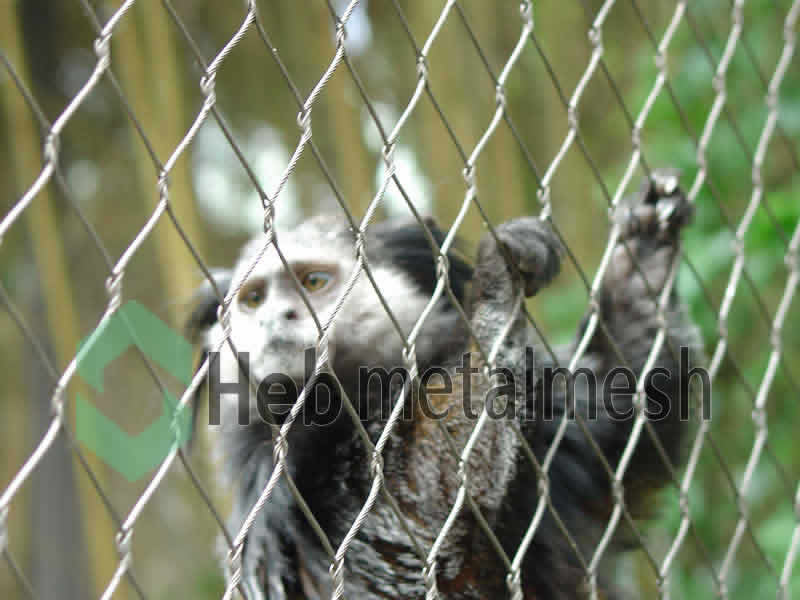Introduction to Rope Mesh Fencing
Rope mesh fencing is an innovative and versatile solution designed for a variety of practical applications, including safety, security, and aesthetic enhancements. It consists of a network of interwoven ropes that create a strong barrier while allowing visibility and airflow. This fencing system is particularly notable for its heavy-duty capabilities, making it suitable for both residential and commercial spaces.
The primary materials used in the construction of rope mesh fence typically include high-strength ropes made from durable synthetic fibers combined with stainless steel components for added structural integrity. The stainless steel offers excellent resistance to corrosion and weathering, ensuring longevity and performance in various environmental conditions. The combination of these materials provides a strong, lightweight, and flexible fencing solution that can be adapted to different settings.
Heavy duty rope mesh fencing serves a multitude of purposes across different sectors. For instance, it is commonly utilized for enclosing livestock at farms and estates, safeguarding swimming pools, and providing barriers around construction sites to deter unauthorized access. Moreover, its design allows for the subtle integration of fencing into natural landscapes, making it a popular choice among property owners looking to maintain the aesthetic appeal of their surroundings while ensuring safety. Additionally, the visibility provided by rope mesh fencing enables a sense of openness, combining functionality with a modern design approach.
Overall, rope mesh fencing represents a practical fencing option that merges durability with visual appeal. It is well-suited for applications that require a heavy-duty yet versatile fencing solution, proving beneficial in contexts from agricultural settings to urban environments. As demand for efficient, multi-functional fencing continues to grow, heavy duty rope mesh fence stands out as an exceptional choice for various needs.
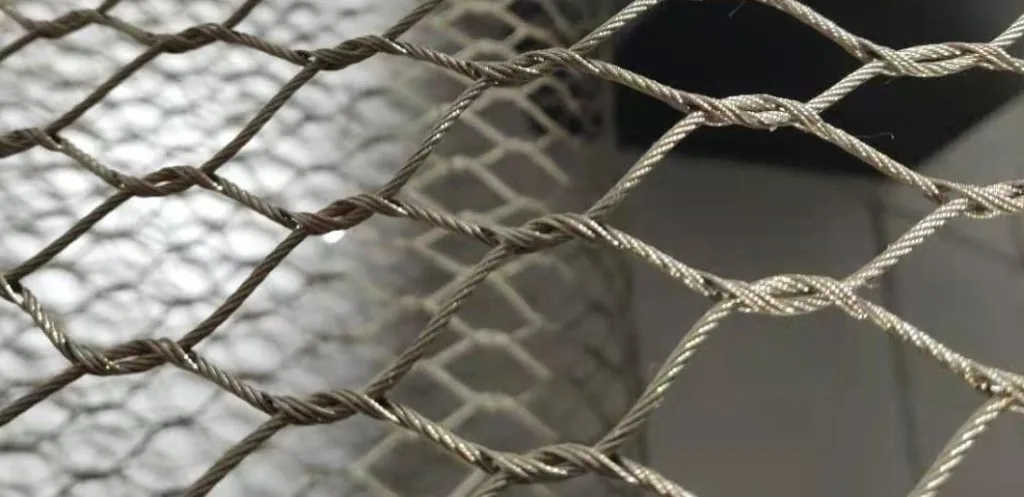
Benefits of Heavy Duty Rope Mesh Fencing
Heavy duty rope mesh fencing has gained popularity in various applications, thanks to its numerous advantages that cater to both residential and commercial needs. One of the most significant benefits is its remarkable durability. Constructed from robust materials, this type of fencing can withstand harsh weather conditions, making it ideal for regions with extreme temperatures, high winds, or heavy rainfall. This resilience ensures that property owners invest in a long-lasting solution that minimizes the need for frequent repairs or replacements.
Another advantage is the strength of heavy duty rope mesh fencing. Designed to bear substantial loads and resist damage, this fencing offers reliable security for homes and businesses alike. Whether securing livestock, protecting crops, or outlining property boundaries, the robust nature of the rope mesh provides peace of mind, knowing that your assets are adequately safeguarded against intruders or roaming animals.
In addition to its functional benefits, heavy duty rope mesh fencing is also highly resistant to various environmental elements. Unlike traditional fencing solutions, it can effectively resist pests and prevent corrosion, leading to a longer lifespan for your investment. This resistance contributes to its cost-effectiveness over time, as property owners can avoid the expenses associated with upkeep and premature replacement.
Aesthetic appeal is yet another advantage of heavy duty rope mesh fencing. Its versatile design options allow property owners to select a look that complements their surroundings, whether a rustic countryside home or a modern commercial establishment. Available in various colors, materials, and styles, this fencing can enhance the overall appearance of any property. With its combination of strength, durability, and design versatility, heavy duty rope mesh fencing stands out as an excellent choice for those seeking a reliable and attractive fencing solution.
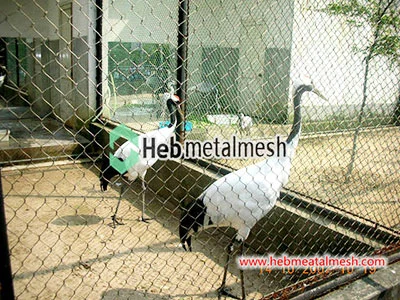
Applications of Rope Mesh Fencing
Rope mesh fencing has a wide variety of applications that highlight its versatility and functionality. This type of fencing is particularly useful in settings where both security and aesthetics are essential. One of the most common applications of rope mesh fencing is in gardens. Here, it serves not only to delineate property lines but also to protect plants from various wildlife. As it allows air and sunlight to pass through, rope mesh fencing maintains the natural aesthetic of the garden, making it an appealing choice for residential areas.
In parks, rope mesh fencing can be employed to create safe, enclosed play areas for children, limiting access to those spaces while ensuring visibility from outside. This design prevents unauthorized entry and discourages potential vandalism while still allowing parents to keep an eye on their children. Additionally, parks may utilize rope mesh fencing to distinguish between different zones, such as separating picnic areas from wildlife habitats.
Construction sites also benefit from the robust characteristics of rope mesh fencing. It serves as an effective barrier to restrict entry, ensuring the safety of both workers and passersby. Its lightweight nature makes it easy to install and remove, which is crucial given the temporary nature of construction projects. Furthermore, the transparent quality of rope mesh fencing allows for visibility, making it less imposing than traditional wooden or metal barriers.
Wildlife enclosures are another significant application for rope mesh fencing. In conservation areas, the fence provides a secure environment for animals while allowing natural light and airflow. By using this type of fencing, wildlife enclosures can maintain a close connection to their natural habitat, thus promoting the well-being of the animals within. Overall, rope mesh fencing proves to be an optimal solution across diverse scenarios, accommodating security needs while enhancing the surrounding landscapes.
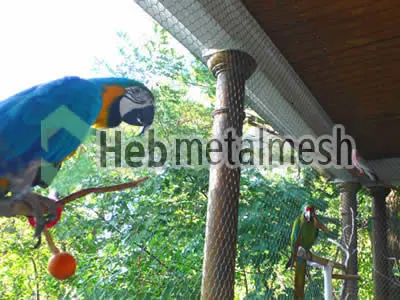
The Role of Stainless Steel in Rope Mesh Fencing
Stainless steel plays a critical role in the manufacturing of rope mesh fences, contributing to their overall durability and reliability. This material is particularly favored for its unique properties that significantly enhance the performance of the fencing system. One of the most notable characteristics of stainless steel is its exceptional corrosion resistance. Unlike other metals, stainless steel is composed of iron, carbon, and a minimum of 10.5% chromium, which forms a protective oxide layer when exposed to air. This feature ensures that the rope mesh fence remains intact and functional even in harsh environmental conditions, making it an ideal choice for both coastal and industrial applications.
Moreover, the longevity of stainless steel is unmatched by many alternative materials. Its resistance to rust and decomposition means that a rope mesh fence constructed from stainless steel can last for decades without necessitating frequent repairs or replacement. This durability translates to significant cost savings over time, as homeowners or businesses will spend less on maintenance and replacement fencing systems. In contrast, options such as galvanized steel may require ongoing upkeep or eventual replacement due to susceptibility to rust.
Additionally, stainless steel offers exceptional strength, providing the necessary tension support for the rope mesh configuration. This strength allows for an increased span between posts and reduces the need for supplementary structural support, which can lower installation costs. Importantly, the aesthetics of stainless steel should not be overlooked; it can be manufactured in a variety of finishes to suit different design preferences, all while maintaining its integrity. Therefore, when considering a robust and long-term fencing solution, stainless steel emerges as the premier material for constructing a reliable rope mesh fence.
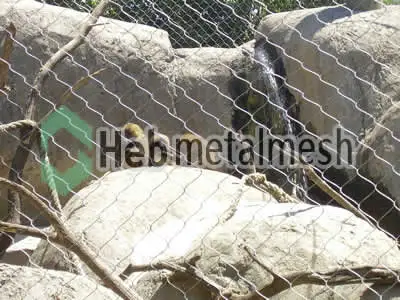
Evaluating Rope Mesh Fence Cost
When considering a rope mesh fence, multiple factors contribute to the overall cost, making it essential for potential buyers to understand these variables. The length of the fence is one of the primary determinants; the greater the perimeter to be enclosed, the higher the expense. Typically, rope mesh fencing is priced per linear foot, which means longer installations will naturally lead to increased costs. Height also plays a significant role, as taller fences require more materials and can complicate the installation process, influencing labor costs accordingly.
Material quality significantly impacts pricing as well. Higher quality materials, such as durable synthetic fibers or treated natural fibers, tend to offer better longevity and resistance to harsh weather conditions but come at a premium. Conversely, opting for lower-quality materials may reduce initial expenses but could lead to higher maintenance costs or replacement needs in the long run. As such, buyers should weigh the upfront financial savings against potential long-term costs.
The installation method is another critical aspect affecting the price of a rope mesh fence. Professional installation typically incurs additional charges, but it ensures the fence is installed correctly to withstand environmental stresses and provide optimal stability. Alternatively, some buyers may opt for a do-it-yourself approach to save costs; however, this route necessitates a certain level of skill and tools, which can also influence the overall expenditure.
Budgeting for a rope mesh fence installation may require thorough research and planning. Buyers should actively seek quotes from multiple suppliers and assess financing options available to manage upfront costs more effectively. Through careful evaluation of these elements—length, height, material quality, and installation methods—potential customers can make informed decisions that align with their budgets and fencing needs.
Where to Find Rope Mesh Fencing for Sale
When seeking to purchase a rope mesh fence, it is essential to identify reliable sources that provide high-quality products. Luckily, there are several avenues available for consumers looking to invest in heavy duty rope mesh fencing. These options include both online and offline retailers as well as direct manufacturers, which can offer a comprehensive variety of styles and price points.
Online platforms such as specialized fencing websites, e-commerce giants like Amazon, or home improvement sites such as Home Depot and Lowe’s, often have an extensive selection of rope mesh fencing options. These platforms usually provide detailed product descriptions, customer reviews, and competitive pricing, which can be beneficial in making informed decisions. Additionally, some companies have established online storefronts with direct sales from manufacturers, which often means lower prices since intermediaries are eliminated.
Offline, local hardware stores and fencing suppliers can be quite helpful. Visiting these shops allows customers to see and feel the materials before making a purchase. Furthermore, knowledgeable staff can provide valuable insights regarding the durability and applications of various types of heavy duty rope mesh fencing, ensuring that buyers find the most suitable choice for their needs.
It’s also advisable to look for reputable manufacturers known for quality mesh products. Brand websites often list their authorized dealers and distributors, which can help buyers locate nearby purchase options. Moreover, attending trade shows or home and garden expos can be great opportunities to connect directly with suppliers and negotiate potential discounts.
To ensure the best deal, potential buyers should perform thorough market research, compare prices among different sellers, and inquire about bulk discounts or promotions. Reading customer testimonials and checking warranty information can also aid in establishing trust in the quality of the rope mesh fence being purchased.
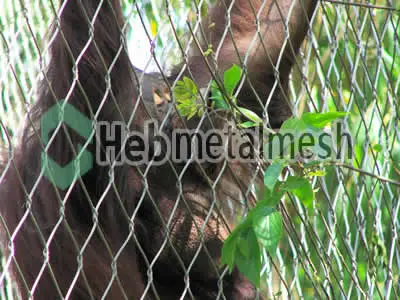
Installation Tips for Rope Mesh Fencing
Installing a rope mesh fence can be a straightforward process when approached systematically. Before starting, it is essential to gather the necessary tools which typically include stakes, a post level, a hammer, a measuring tape, and wire cutters. Depending on the scale of your project, you may also need a fence tensioning tool and a drill for securing the posts. Planning is crucial, so take time to map out the area where the rope mesh fence will be installed. Clear the space of any debris or obstacles that may hinder the installation process.
Begin by marking the corners and ends of the fencing area using stakes. Ensure that the measurements between posts are consistent, adhering to the specifications required for your rope mesh fence. It is advisable to start with the corner posts, which will provide stability to the entire structure. Dig holes for these posts, ensuring that they are deep enough to withstand the tension of the rope mesh. Typically, a depth of at least one-third of the post height is recommended for optimal stability.
Once the corner posts are in place, continue installing the intermediary posts. After all posts are secured, assemble the rope mesh fence by running the rope through the meshes and securing it at each connection point. It is vital to maintain tension on the rope to avoid sagging. Additionally, safety should be a priority throughout the installation; gloves should be worn to protect your hands from sharp edges or tools. Consider whether to hire professionals for a more polished finish, especially for larger installations, or if a DIY approach is viable with the help of capable friends or family members. DIY installations can save costs but may require more time and effort than anticipated. Overall, proper planning and execution will ensure a successful installation of your rope mesh fence.
Maintenance of Rope Mesh Fences
Proper maintenance is essential for the longevity and durability of rope mesh fences. Factors such as weather conditions, proximity to trees or vegetation, and the materials used in the construction of the fence can all influence the maintenance requirements. Regular maintenance not only enhances the aesthetic appeal of the rope mesh fence but also ensures it remains functional and safe for its intended use.
Routine cleaning is an integral part of maintaining a rope mesh fence. It is advisable to remove debris such as leaves, dirt, and other materials that can accumulate over time. A simple solution of mild soap and water, along with a soft brush, can be employed to clean the mesh without causing damage. Strong chemicals or abrasive tools should be avoided as they may degrade the integrity of the materials used in the fencing.
In addition to cleaning, regular inspections of the rope mesh fence are crucial. These inspections should focus on checking for any signs of wear and tear, such as frayed sections of the rope or rust developing on metal components. Any damaged areas should be addressed promptly to prevent further deterioration. Tightening loose ropes or cables can also be an effective method to maintain the overall structure and strengthen the mesh.
When repairs are necessary, one can either enlist professional assistance or undertake the task independently, depending on the extent of the damage. For minor repairs, replacement of individual rope sections may suffice, while extensive damage may warrant the replacement of larger panels of the fence. Adhering to a regular maintenance schedule can significantly extend the life of your rope mesh fence, not only preserving its function but also safeguarding your financial investment in this durable fencing option.
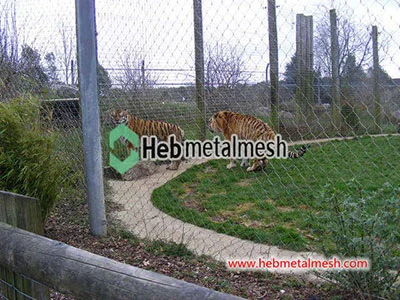
Conclusion: Making the Right Choice for Your Property
In evaluating the various fencing options available, it becomes evident that heavy duty rope mesh fencing offers numerous benefits for both residential and commercial properties. The combination of durability, versatility, and aesthetic appeal makes it an attractive solution for individuals seeking an effective boundary without compromising on style. Furthermore, this type of fencing is particularly well-suited for a range of applications, from agricultural to security uses, making it a flexible choice for diverse environments.
One of the key advantages of rope mesh fences is their ability to withstand harsh weather conditions, thereby providing long-lasting protection. Unlike traditional fencing materials, which may succumb to environmental degradation, heavy duty rope mesh is designed to endure, reducing the need for frequent repairs or replacements. This longevity translates to lower maintenance costs over time, making it a cost-effective investment for property owners.
Additionally, the lightweight nature of rope mesh fencing allows for easy installation and maneuverability, ensuring that the setup process is both efficient and less labor-intensive. This is particularly beneficial for those who may wish to modify or relocate their fencing in the future. When considering aesthetic elements, the natural look of rope mesh fencing can seamlessly integrate with landscaping, enhancing the property’s overall visual appeal without appearing overly intrusive.
Ultimately, making the right choice for your property involves assessing your specific needs, desired level of security, and budget constraints. Whether you prioritize aesthetics, durability, or ease of installation, heavy duty rope mesh fencing provides a well-rounded solution. By carefully weighing the pros and cons, you can make informed decisions that best suit your property and lifestyle, ensuring a practical and sustainable fencing option for years to come.
